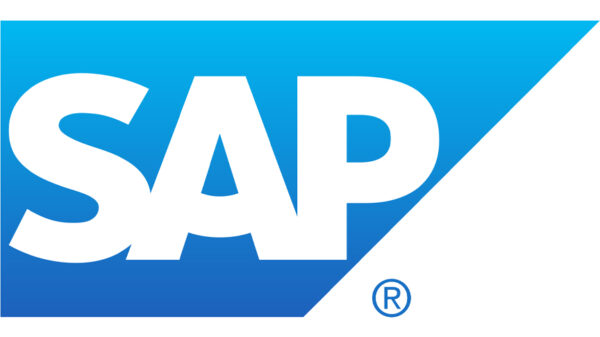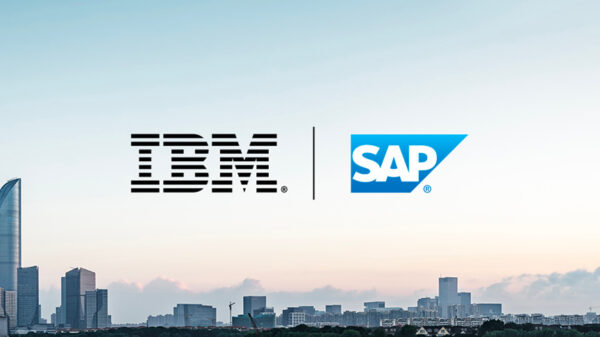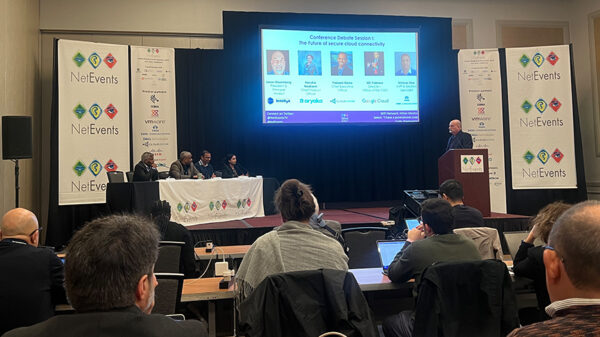“Cloud in today’s market is a growing necessity; this is how customers are using technology today and how they want to consume software. Cloud-based solutions enable companies to run simple, reduce time to value, and be more competitive in the digital economy – where complexity is often the biggest stifler to growth,” said Ryan Poggi of SAP Philippines.
In 2013, IDC’s “New enterprise IT spend” noted that 75% of new enterprise IT spend will be cloud-based or hybrid by 2016, with an estimated $200 billion plus greater cloud market growth by 2018, including cloud services and the technology to enable cloud services.
 “SAP has always focused on innovation as the key pillar of our strategy. Ever since 2010, we have made it the key to our growth. Since then, we have achieved significant success and are evolving it further to become the cloud company powered by SAP HANA,” Poggi said.
“SAP has always focused on innovation as the key pillar of our strategy. Ever since 2010, we have made it the key to our growth. Since then, we have achieved significant success and are evolving it further to become the cloud company powered by SAP HANA,” Poggi said.
SAP’s available cloud-based solutions, including offerings from acquisitions of cloud-first companies, has propelled SAP to be one of the largest cloud players in the industry. Recent acquisitions of SAP SuccessFactors, Ariba, Hybris, Fieldglass and Concur, enable SAP to hold leading positions in HR, Customer Engagement and Commerce, Procurement, Travel, and Contingent Workforce, all powered by the SAP business network.
“The results of SAP’s earnings speak to the success of our cloud capabilities in the market. During our most recent earnings announcement, announced in late January 2016, for the full year of 2015, SAP’s non-IFRS cloud and software revenue in Asia Pacific Japan grew by 20%, while cloud subscriptions grew by a whopping 99%.
This effectively positions SAP as the fastest growing enterprise cloud company at scale, with the largest cloud portfolio (over 30 solutions for all lines of businesses as well as business suites). SAP has 41 datacenters in 21 locations in over 11 countries,” Poggi said.
At a glance, SAP Cloud:
- Has over 80 million cloud users.
- Has the most comprehensive cloud LOB portfolio, covering the core and key lines of business, with SAP cloud solutions from HR to procurement to sales to customer service.
- Has a social business platform SAP Jam that now has over 21 million users, more than competitors Chatter and Yammer.
- Has over 1.9 million connected companies transacting over $700 billion in commerce on an annual basis.
- Has the agility of an advanced cloud platform – i.e. the SAP HANA Cloud Platform provides the agility to drive new levels of innovation, extend investments and adapt business processes faster.
- Has private and managed cloud options with SAP HANA Enterprise Cloud, a managed cloud service ideal for mission-critical applications; HEC offers cloud elasticity and scalability removing risk while lowering total cost of operations.
- Has cloud for all sizes – e.g. SAP Business One Cloud includes the same functionality and available add-on solutions as SAP Business One on-premise, but delivered via the cloud as an affordable option for smaller enterprises, powered by the SAP HANA platform.
- Has vast ecosystem of cloud partners, since SAP today has more than 12,800 partners worldwide, including channel partners, ISVs, OEM, platform and services partners. More than 1,400 partners are taking advantage of our cloud offerings to make our cloud strategy a reality through new app development, cloud services, and reselling.
“It is an acknowledged fact that one of the main problems businesses struggle with today is the immense complexity being faced in their organizations – whether that comes from their organizations, business process or technology. This complexity has been built up over time by many factors and limits customers’ ability to innovate and grow,” Poggi said. “SAP understands this challenge and focuses on three key initiatives to deliver on our commitment to run simple.”
First, SAP simplifies consumption. “We continue to streamline and simplify consumption of our portfolio of products. Our focus will remain on solutions specific to 25 industries and 13 lines of business. We will support our customers with a mix of public cloud, private cloud, and on premise capabilities through a world-class platform based on SAP HANA.”
Second, SAP simplifies business processes. “At the foundation of our innovation and strategy is SAP HANA. With SAP HANA as the common platform, we help our customers dramatically accelerate the speed of their business by radically simplifying their IT stack and enabling smarter and faster business processes.”
Third, SAP simplifies user experience. “With the SAP Fiori user experience, we use modern design principles to provide a holistic and consistent user experience across lines of business, tasks, and devices.”
Poggi added: “We have put the above into practice and helped our customers to run simple through: making SAP HANA the single development platform for all SAP solutions whether on premise, cloud or third party integration: HANA integrates all SAP solutions on ONE business platform in the cloud. The platform is not only the unifier and simplifier on top of which all apps can run – it also has enormous processing power, is able to interpret all kinds of data and for the best part provide granular data to the applications in real-time to have the flexibility to adapt quickly.”
SAP HANA is now provided as the single extension platform for customers and partners, with currently, more than 790,000 active users at 5,800 customers using HANA, more than 8,500 trained partners support it and 1,800 startups develop on the base of HANA.
Poggi believes that “every industry could benefit from cloud technology – this is because every industry is looking for cost-effective technology solutions to resolve their business issues and overcome complexity, and cloud technologies could be leveraged to effectively support companies’ expansion plans. Helping such customers embark on their cloud journey calls for specific industry understanding and experience… This is another real strength of SAP in the digital economy – to drive simplicity by leveraging our vast industry expertise to help companies bring best practices from one industry to bear on another. To be competitive in the digital economy, industries need to leverage technology, to be a ‘live business’, by leveraging omni-channel strategies, which utilize multiple sources of data (including social media) to not only predict and respond in real-time, but to react to changing market environments.”
As for the industries that he think will pick up cloud, Poggi cited a study by the Asia Cloud Computing Association (an industry association for cloud computing in Asia Pacific), which cited that the Business Process Outsourcing (BPO), technology start-ups and retail which will be the three industries likely to lead cloud computing adoption in the Philippines.
“However, as mentioned above, we believe that every industry can and would benefit from adopting cloud technology, especially as we speed into the digital economy era. All industries today are seeking innovative means of reducing costs to funnel funds into growth areas, enhancing overall business efficiency through streamlining processes or enabling insight into real time data to help with necessary business decisions that could shed light on new sources of revenue or alternative means of further growth. Another key aspect that all industries are fighting to overcome is business complexity, to facilitate ease of adoption and time to value, which can be delivered through business simplicity,” Poggi said.
SAP’s portfolio of business applications available here in the Philippines can be deployed on premise, in a managed cloud, or in a public cloud environment.
These applications include: SuccessFactors for HR in the cloud, as well as core HR available in the managed cloud or on premise; Customer Engagement and Commerce through hybris, SAP Cloud for Customer, and omni-channel eCommerce solutions across SAP’s suite; Ariba, Fieldglass and Concur for procurement of materials, contingent labor and travel, as well as SRM; industry apps and IoT; S/4HANA for core ERP, with Finance and SAP S/4HANA Enterprise Management (formerly known as Simple Logistics); and other solutions for such needs as APO and manufacturing.
“This is what makes SAP’s cloud offerings unique – the ability to provide a comprehensive offering across every line of business, for every industry, in an integrated and consistent way – helping our customers address the complexity that exists at the data level, the technology level, the integration level, and the lack of industry capability level, in a platform coherent way, anywhere in the world,” Poggi ended.




















































































































